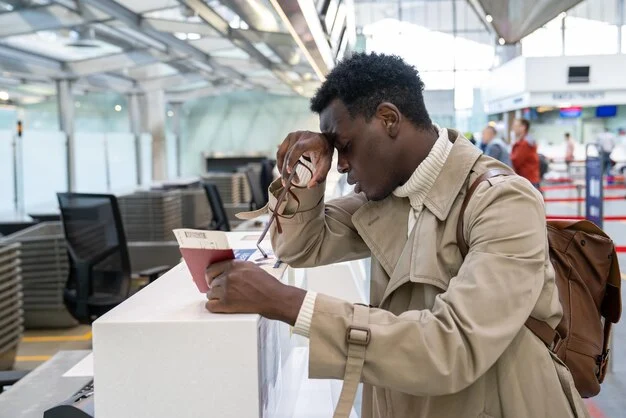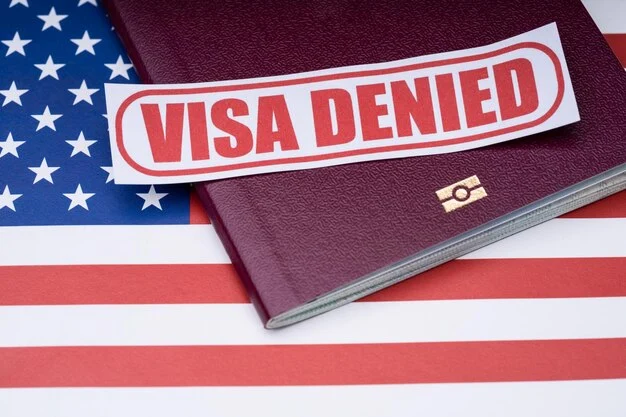As someone about to process a travel application, you may wonder, “How can I avoid Visa Rejection?”. With the high rejection rate among applicants, this is no surprise. In today’s world, obtaining a visa is a crucial step for International travel, whether for visits, education, or work. However, this process may be quite confusing, with the possibility of rejection in the minds of applicants.
In this complete guide, we’ll be going into detail on the strategies to avoid visa rejection. As someone who has been refused previously under the INA section 214b for an F1 Visa, I would be going deep on the proper way to put in your application that significantly reduces any chances of a similar rejection or any other type of Visa rejection.
So what are these strategies on how you can avoid Visa rejection? Walk with me.
How Can I Avoid Visa Rejection
1. Demonstrate Strong Home Ties
This is very crucial in your Visa application. Consulates need the assurance that you’ll be returning to your home country after your visa expires to approve your application. 100% of the time, an average Visa Officer believes you have permanent immigration intent before going through your application. This is a case of guilty until proven innocent hence, it’s left for you to prove them otherwise.
Highlight strong home ties by showing that you have dependants or relatives in your home country that you intend to return to, or by showing you have a job or education that you wouldn’t leave behind with relevant proof to back this up. Asset ties like landed properties or investments also pass as good home ties.
This is one of the most popular reasons for Visa rejection and all you’re required to do is prove to the Visa Officer beyond reasonable doubt that you’ll be returning home.
2. Sufficient Proof of Funds
Financial stability is another crucial factor in determining if your visa will be approved. Consulates thoroughly go through financial documents to ensure that applicants can be financially independent without depending on government assistance. If the Officer is not confident that you have the required funds for your plans, your Visa will be refused.
Also, being financially stable doesn’t just involve the funds being up to the required amount. Lump sum deposits or any suspicious inflation of your account statement without justification is a red flag for the Visa Officer, implying that you borrowed funds just for your Visa application. Hence, if there are any lump sum deposits in your account, you need to make the Visa Officer understand the reason for that – such as the sale of a property or a gift deed – with proof to back your statement up. This is very important in the prevention of visa denial
3. Apply Early
Many times, visa officers get a high volume of applications leading to processing delays. Hence it is your responsibility to be aware of this possibility and put in an early application to allow enough time for review. Also, no one hopes for issues to come up in their application, however, the reality is that this may happen. An early application will ensure issues are dealt with promptly and additional documentation is provided if required.
To avoid Visa refusal, an early application is essential to demonstrate preparedness and sincerity, also allowing enough time for processing and any potential issues that may occur.
4. Communicate a Clear Purpose of Travel
Visa officers need assurance that your travel is consistent with the stated purpose and that you intend to abide by visa regulations. Inconsistencies in your purpose of travel may be a red flag and lead to a refusal.
You must communicate your purpose of travel clearly to the Visa Officer with supporting documents. This shows you as a credible applicant and helps in the prevention of visa refusal. It also shows that your intended purpose of travel aligns with the visa category you’re applying for. Communicating your travel intentions will help in avoiding a visa refusal and significantly increase your chances of approval.
5. Seek Professional Assistance
Getting help from a professional will significantly reduce the risk of visa rejection. Professionals with lots of experience have a thorough understanding of Visa application processes and regulations, which allows them to navigate any complexities easily. They can provide information on the necessary documents you require, help in compiling these documents, filling forms, and presenting a solid case to the Visa officer.
By leveraging their wealth of experience, you can minimize errors and address possible red flags, which will increase your chances of Visa approval. Hiring a professional is a proactive measure to avoid visa refusal so if you have the means, it’s a great option.
Difference between Visa Refusal and Visa Rejection
Many times, Visa rejection and refusal are used interchangeably however, they differ in their implications and outcomes. Visa refusal often happens when a visa application is denied usually because the applicant failed to include a required document or missed filling in critical information during their application. A refusal is usually considered to be a momentary delay or setback. The applicant simply needs to address the issue and reapply.
However, a Visa rejection is more of a final decision by the consulate. This usually occurs when there is a significant difference between the visa requirement and the applicant’s application. A rejection could also occur when an appeal is denied. In a nutshell, a Visa rejection is an indication that an applicant is not eligible for the specific Visa being applied for.
If my Visa is Rejected, Can I Apply Again?
You may not be able to appeal if your Visa is rejected, but yes, you can reapply when rejected. For example, a visa denial under the INA 214 (b) is not a permanent ineligibility however, you must address any issues that led to the rejection if you’re going to have any chances of getting an approval. You will most likely be paying the visa application fee again.
If you happen to have a Visa rejection, your responsibility at this point is to thoroughly analyze where you made a mistake in your initial application, rectify those mistakes, and back them up with relevant documents as proof.
To put it all into perspective, avoiding a Visa rejection will require you to be thorough in your application process. By adhering to the suggestions in this blog post, you have the necessary information to on how to avoid visa rejection however, if it happens, here’s how you can resolve it.
One of the points raised earlier is to seek professional assistance. If you intend to apply for a Canadian Visa and need professional guidance, I recommend that you click here. Best wishes in your Visa application.



